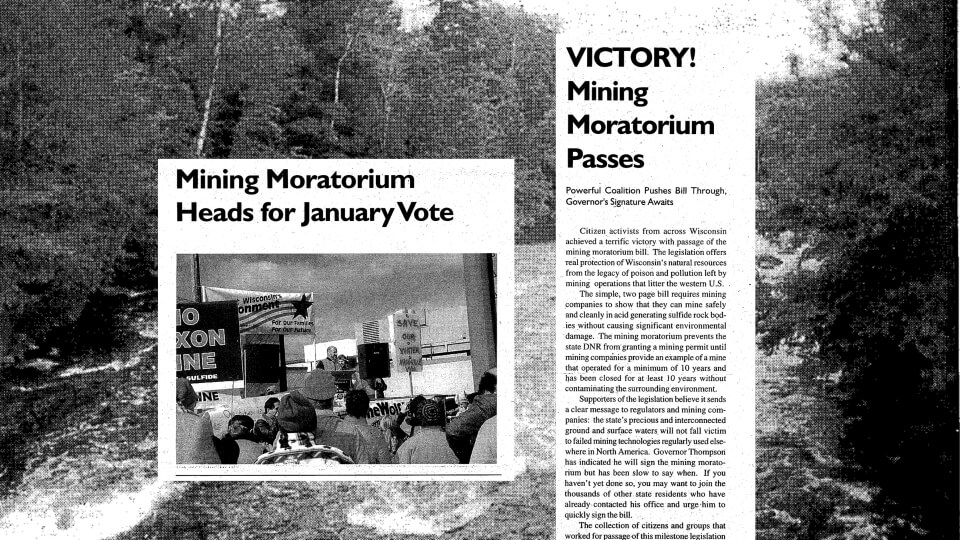Our Legacy of Victory
Mining Moratorium Act
The Mining Moratorium Act of 1998 was a major win for Wisconsin’s environment that essentially put an end to many types of metallic mining operations throughout the state. The act prevented any new metallic mining permits from being approved unless a similar mine had operated for ten years and been closed for ten years in North America without causing harmful pollution. Such strong standards effectively stopped metallic mining proposals since no mine existed that could meet the criteria. Clean Wisconsin’s work engaging diverse interest groups — including tribal nations and sporting organizations — helped apply immense political pressure which ultimately led to bipartisan support for the legislation.
A diverse coalition of tribal communities, environmental groups, hunting and fishing organizations, resort and tourism interests, labor unions, local municipalities, and religious groups supported the moratorium. Clean Wisconsin and the wider coalition faced fierce opposition from mining equipment manufacturers and lobbying groups like Wisconsin Manufacturers and Commerce. Despite special interest groups’ efforts to prevent the legislation from moving forward, it the bill passed with near-unanimous, bipartisan support. Gov. Tommy Thompson signed it into law.
Why It Matters
The Mining Moratorium Act also helped shift public sentiment about sulfide mining, which remains to this day. Gov. Scott Walker repealed the act in 2017 claiming that advances in mining technology have largely eliminated the risk of environmental pollution, but longstanding public and local opposition to such projects has continued to prevent any new projects from getting approved.
